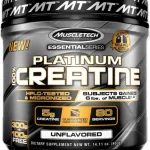Unlocking the Secrets of Gut Health
The Microbiome Connection
1- Introduction to the Microbiome
The microbiome refers to the complex community of microorganisms that inhabit various environments within the human body, particularly the gastrointestinal tract. This diverse array of bacteria, viruses, fungi, and other microbes plays a crucial role in maintaining our health. The significance of the microbiome cannot be overstated, as it is integral to processes such as digestion, metabolism, and even immune function. It comprises trillions of microorganisms, outnumbering human cells by a factor of ten, indicating the immense scale and influence of these microbes.
Among its various components, the gut microbiome is one of the most extensively studied. The residents of this microbial ecosystem contribute to the breakdown of complex carbohydrates and fibers that the human body cannot digest alone, facilitating nutrient absorption and energy production. Furthermore, these microorganisms synthesize essential vitamins, such as B and K vitamins, which are vital for various bodily functions.
In addition to aiding digestion, the microbiome plays a critical role in modulating the immune system. By interacting with immune cells, the microbiome can help the body distinguish between harmful pathogens and benign substances, promoting a balanced immune response. This intricate relationship underscores how disturbances in the microbiome can lead to various health issues, including inflammatory bowel diseases, allergies, and even metabolic disorders.
Research into the microbiome has rapidly expanded in recent years, leading to a burgeoning field of study that explores its links to numerous health outcomes. Scientists are investigating how the microbiome influences mental health, autoimmune conditions, and chronic diseases. Understanding the microbiome’s intricacies offers promising avenues for innovative therapies and preventive measures in health and wellness. As our knowledge advances, so does the potential to unlock the secrets of gut health, revealing the profound interconnectedness between our microbiome and overall well-being.

2- The Gut-Brain Connection
The relationship between gut health and mental well-being has garnered significant attention in recent years, highlighting an intricate connection identified as the gut-brain axis. This bidirectional communication pathway links the gastrointestinal system to the central nervous system, allowing the gut microbiome to exert influence over brain function and emotional regulation. Research suggests that the microbial composition within the gut can affect neurotransmitter production, leading to alterations in mood and cognitive function.
One prominent neurotransmitter influenced by the gut microbiome is serotonin, often referred to as the “feel-good” neurotransmitter. Approximately 90% of serotonin is produced in the gut, where specific bacteria play a critical role in its synthesis. Imbalances in gut microbiota can hinder the production of serotonin, which has been associated with mood disorders such as depression and anxiety. Consequently, maintaining a diverse and balanced microbiome may lead to improved emotional health and resilience against anxiety-related disorders.
Numerous studies underline the importance of gut health in relation to mental health conditions. For instance, a review of various clinical trials showed that individuals with depression often exhibit altered gut microbial profiles compared to healthy individuals. Probiotic supplementation and dietary interventions aimed at enhancing gut health have emerged as promising strategies to potentially alleviate symptoms of anxiety and depression. Such interventions suggest that nurturing gut health through appropriate nutrition can influence psychological wellness.
Furthermore, the gut-brain connection is not merely a one-way street; emotional states can also impact gut health. Stress and negative emotions may disrupt the balance of gut microbiota, fostering a cycle of detrimental effects on both gut and mental health. Therefore, recognizing the gut-brain connection emphasizes the need for integrated approaches in addressing mental health challenges, as promoting a healthy gut could substantially contribute to psychological well-being.
3. Probiotics: The Good Bacteria Explained
Probiotics are live microorganisms that offer a wide range of health benefits when consumed in adequate amounts. Often referred to as “good bacteria,” these beneficial microbes are primarily found in the gut microbiome, a complex ecosystem composed of trillions of bacteria that play a crucial role in maintaining overall health. Probiotics are categorized into several strains, with the most common families being Lactobacillus, Bifidobacterium, and Saccharomyces. Each strain possesses unique characteristics and is tailored to address specific health concerns.
One of the key roles of probiotics is to restore balance to the gut microbiome. An imbalance, often caused by factors such as poor diet, stress, or antibiotic use, can lead to various digestive issues, including bloating, gas, and diarrhea. Probiotics can help replenish the population of healthy bacteria, thereby promoting optimal digestive health. Additionally, these beneficial bacteria contribute to enhancing the gut barrier, which protects against harmful pathogens and toxins.
Beyond digestive benefits, research has shown that probiotics can support the immune system. A well-functioning immune system is vital for preventing infections and maintaining overall health. Probiotics stimulate the production of specific antibodies and enhance the activity of immune cells, thereby boosting the body’s defenses against illness.
Probiotic sources are abundant, with fermented foods being among the most accessible options. Foods such as yogurt, kefir, sauerkraut, miso, and kimchi are excellent sources of various probiotic strains. Additionally, probiotics can be consumed through dietary supplements, which often provide a concentrated dose of beneficial bacteria. However, the effectiveness of probiotics can be influenced by several factors, including the strain’s viability, dosage, and the individual’s unique gut environment.
4. Prebiotics: Fueling Your Good Bacteria
Prebiotics are non-digestible fibers found in certain foods, which play a crucial role in supporting and enhancing the microbiome in the human gut. Unlike probiotics, which are live bacteria, prebiotics serve as food for beneficial gut bacteria, allowing them to thrive and flourish. By fostering an environment that promotes the growth of good bacteria, prebiotics contribute significantly to overall gut health, thereby influencing digestion, immune function, and even mental well-being.
The significance of prebiotics lies in their ability to enhance the effectiveness of probiotics. When probiotics are consumed, they require a suitable environment and sustenance to establish themselves in the gut. This is where prebiotics come into play; they provide the necessary nourishment to these probiotic strains, thus improving their survival rates and efficacy in promoting gut health. The interplay between prebiotics and probiotics highlights the importance of a balanced diet rich in both components for maintaining a robust gut microbiome.
Several foods are particularly rich in prebiotics, including garlic, onions, leeks, asparagus, bananas, and whole grains. These foods are abundant in fibers like inulin and oligosaccharides, which beneficial bacteria in the gut utilize for energy. Incorporating prebiotic-rich foods into your diet doesn’t have to be complicated. Simple strategies can include adding chopped onions or garlic to your meals, choosing whole grain options like brown rice or whole wheat bread, and enjoying snacks such as bananas or yogurt topped with oats and fruits.
By embracing prebiotic-rich foods, individuals can significantly enhance their gut health, ultimately supporting their overall well-being. This proactive approach to nutrition underscores the importance of understanding the role of dietary components in fostering a healthy microbiome.

5- Lifestyle Factors Affecting Gut Health
Gut health is significantly influenced by various lifestyle factors, which include diet, stress management, sleep quality, and physical activity. Each of these elements interacts with the gut microbiome, playing a crucial role in maintaining digestive health and overall well-being. Understanding these factors can empower individuals to make informed lifestyle choices that enhance their gut health.
The role of diet in gut health cannot be overstated. A diet rich in fiber from fruits, vegetables, and whole grains promotes the growth of beneficial bacteria in the gut. Conversely, a diet high in processed foods, sugars, and unhealthy fats can lead to an imbalance in the microbiome, contributing to digestive issues and other health problems. Incorporating fermented foods like yogurt, kefir, and sauerkraut can also support gut health by introducing beneficial probiotics.
Stress management is another critical component of maintaining a healthy gut. Chronic stress can disrupt the gut-brain axis, leading to conditions such as irritable bowel syndrome (IBS). Techniques such as mindfulness, meditation, and regular physical activity can help mitigate stress, fostering a balanced microbiome. Furthermore, adequate sleep is essential for gut health, as poor sleep patterns can negatively impact the diversity of the microbiome. Prioritizing sleep hygiene by maintaining a consistent sleep schedule and creating a conducive sleeping environment can lead to improved gut function.
Physical activity also plays an important role in promoting gut health. Regular exercise has been shown to increase the diversity of gut bacteria, benefiting overall health. Engaging in moderate exercise for at least 150 minutes a week can lead to substantial improvements in gut microbiome composition. Other beneficial practices include staying hydrated and avoiding excessive alcohol consumption, which can harm gut bacteria.
By evaluating and adjusting these lifestyle factors, individuals can unlock the potential of their gut health, paving the way for improved digestion and overall wellness.
6- The Role of Diet in Gut Health
Diet plays a pivotal role in the maintenance and promotion of gut health by influencing the composition and function of the gut microbiome. A balanced diet rich in fiber, vitamins, and minerals is essential for fostering a diverse and thriving community of gut bacteria. Fiber, in particular, acts as a prebiotic, feeding beneficial microbes and promoting their growth. Foods high in fiber, such as whole grains, fruits, vegetables, legumes, and nuts, should be included in daily meal plans to support optimal gut health.
A variety of vitamins and minerals also contribute to the health of the gut microbiome. For instance, foods rich in vitamins A, C, and E, as well as those that provide zinc and magnesium, can help maintain the integrity of the intestinal lining and promote a healthy immune response. Incorporating colorful fruits and vegetables, such as berries, leafy greens, and bell peppers, can ensure that the body receives an adequate supply of these essential nutrients.
Moreover, certain dietary choices can be detrimental to gut health. Processed foods that are high in sugar and unhealthy fats may lead to an imbalance in gut bacteria, promoting the growth of pathogenic species that can harm gut function. Additionally, excessive consumption of red and processed meats has been associated with negative effects on the microbiome. Therefore, it is advisable to limit the intake of these foods.
When planning meals, consider incorporating fermented foods such as yogurt, kefir, sauerkraut, and kombucha, which are rich in probiotics. These beneficial bacteria can help in restoring balance within the gut microbiome. Proper meal planning that emphasizes a variety of whole foods can not only enhance gut health but also contribute to overall well-being.

7- Supplements for Gut Health: Do They Work?
The interest in dietary supplements for enhancing gut health has surged in recent years, spurred by increasing awareness of the gut microbiome’s role in overall well-being. Various supplements claim to support digestive health, with some of the most popular categories being probiotics, prebiotic fibers, digestive enzymes, and herbal remedies. Understanding their effectiveness and safety is essential for making informed choices.
Probiotics, often referred to as “good bacteria,” are live microorganisms that are thought to confer health benefits when consumed in adequate amounts. They are available in various forms, including capsules, powders, and fermented foods. Research indicates that specific probiotic strains may help alleviate symptoms of irritable bowel syndrome (IBS), improve digestion, and enhance immune function. However, the efficacy of probiotics can vary significantly depending on the strain, dose, and individual gut microbiome composition.
Prebiotic fibers, such as inulin and oligosaccharides, serve as food for beneficial gut bacteria, promoting their growth and activity. Incorporating prebiotics into the diet may lead to improved gut health by increasing microbial diversity, which is often associated with a more robust immune system and decreased inflammation. However, individuals with specific dietary restrictions or digestive sensitivities should consult a healthcare professional before increasing their intake of prebiotic-rich foods.
Digestive enzymes can also play a critical role in breaking down food substances, making nutrients more accessible for absorption. While these supplements may benefit those with enzyme deficiencies or certain digestive disorders, their use should be approached cautiously. Herbal remedies, such as ginger or peppermint, are often utilized to alleviate digestive discomfort, but evidence supporting their specific impact on gut health is variable and warrants further research.
In conclusion, while dietary supplements can contribute to gut health, the effectiveness and safety of these products depend on various factors including individual health needs and specific formulations. Consulting with a healthcare provider is advisable before incorporating new supplements into one’s routine, ensuring a balanced approach to supporting digestive well-being.
8- Conclusion: Taking Charge of Your Gut Health
In summary, the journey towards better gut health is both necessary and achievable, underscoring its vital role in overall well-being. The gut microbiome, with its intricate balance of bacteria, fungi, and other microorganisms, significantly impacts not just digestive health but also immunity, mental health, and may even influence chronic conditions. Through our exploration, we have identified that a diverse and well-nourished microbiome is essential for those seeking an enhanced quality of life.
To take actionable steps towards improving your gut health, adopting certain dietary habits can make a considerable difference. Incorporating a variety of fiber-rich foods, such as fruits, vegetables, legumes, and whole grains, nourishes beneficial gut bacteria and promotes their growth. Fermented foods, including yogurt, sauerkraut, and kefir, are also instrumental in introducing live probiotics, contributing to a more diverse microbiome.
Moreover, lifestyle choices play a crucial role in supporting gut health. Reducing stress through mindfulness practices, ensuring adequate sleep, and engaging in regular physical activity can collectively foster a healthier gut environment. It is equally important to limit the intake of processed foods, excessive sugar, and artificial additives, as these can negatively impact gut integrity and diversity.
Furthermore, mindful supplementation, particularly with probiotics and prebiotics, may bolster gut health, especially during times of gastrointestinal disturbance or after antibiotic use. However, it is advisable to consult with a healthcare provider before initiating any supplementation regime to ensure it aligns with individual health needs.
By embracing these practices, you can effectively take charge of your gut health, paving the way for enhanced physical and mental well-being. A healthy gut can lead to a healthier life, giving you the tools to thrive both physically and emotionally.
Latest Articles
Popular Reviews
AmRelieve Knee support
The Role of Whey Protein for Fitness
Elastic rubber band exercise
Essential Platinum Creatine
How can we help you?
We are your one-stop-shop for all things sports, nutrition and stress management. Our team of experts provides you with the latest reviews on sports equipment, nutrition facts and stress management advice. We also provide ratings to help you make informed decisions on what to buy. Stay ahead of the game with our blog website! Join our community today and get access to exclusive content and deals.
Most used tags
#Adaptogens #ModernNutrition #HolisticHealth #StressRelief #HealthyLiving #BrainHealth #CognitiveFunction #EnduranceTraining • #ExerciseForMentalHealth #ExercisePsychology #FitnessChallenge #FunctionalFitness • #HyroxRace • #MentalFitness #MentalHealth #ExerciseBenefits #MindBodyConnection #StressRelief #FocusThroughFitness #EmotionalWellBeing #HealthyLiving #FitnessMotivation #MentalHealthAndExercise #MentalWellness #Mood-boosting winter workouts #PhysicalActivity #WellnessJourney #Winter workout motivation ACLInjury ACLSurgery Blood pressure Cardiovascular exercise ChiaPudding Exercise fitness Gains healing healthy HealthyEating HealthyRecipes HyroxFitness • injury Mental Health in Motion muscle gain NutrientPackedMeals Prevention Resistance training Sport SportsInjuryTreatment Stretching and Cooling Down Supplements therapy Top Wearable Fitness Technology Trends Shaping 2024 training weight loss wellbeing Workout Routine
We value your thoughts and insights on this topic. Please share your comments, questions, or experiences below. Your feedback helps us to continue providing valuable information and resources to our readers. Let’s have a conversation!










